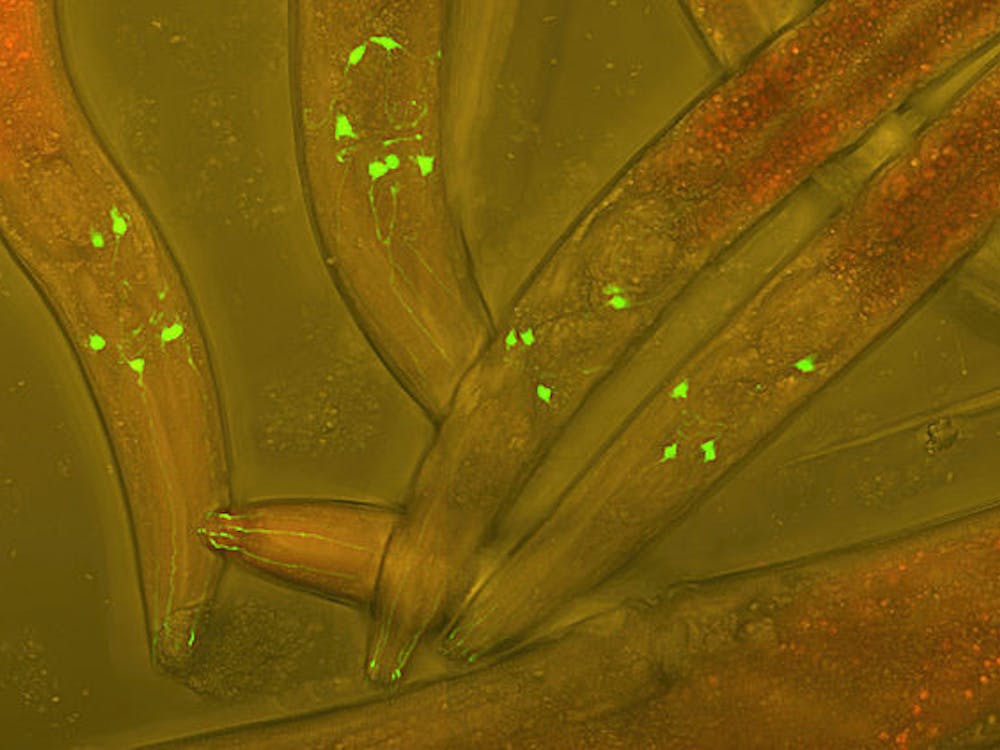
Senior Maya Mann’s interest in accessible city planning and appreciation for public transportation stems from growing up in New York City, N.Y. In an interview with The News-Letter, Mann described her research in urban planning as an aspiring systems engineer, which she hopes will inspire city policy makers to make more informed decisions.
Mann has been working at Center for Systems Science and Engineering (CSSE) with Professor Lauren Gardner since her sophomore year. Given her interest in urban planning, specifically in geospatial data analysis, Mann has been involved with a project studying transportation accessibility in American cities.
Although Mann came to Hopkins as an Applied Math and Statistics major, she switched to Systems Engineering in her sophomore year due to the department’s smaller class sizes. Although the Civil Engineering and Systems Engineering majors follow a similar curriculum for the first two years, Mann highlighted that Systems Engineer majors have a greater focus on data science and software coursework in the latter years. This led Mann to realize that with Systems Engineering, she could focus on her interests in applied math in a smaller classroom environment.
Mann first developed a close relationship with Gardner, her research professor, while taking a network modeling class. Mann highlighted that small classroom sizes and speed networking events within the department allowed her to get to know Gardner’s research well, which then led her to get involved with the lab.
Mann is working on access to fresh foods and grocery stores in American cities and considering differences in access on the U.S. census block group level, which is a statistical division generally defined to contain between 600 and 3,000 people. Mann and her team are specifically evaluating how close grocery stores are to each centroid group by walking and driving, and ultimately creating a collection of data to demonstrate the accessibility of fresh food. The team began by collecting data for groups in Baltimore but are now working to expand their project to about 100 major cities in the U.S.
Mann described her role in the group’s data collection and analysis process, specifically highlighting the use of coding tools.
“A lot of the work that I do is coding in Python, where we're pulling open source data and using anonymous mobility data, showing where people live and where they go,” she said. “We're building street networks in Python and routing car, bus and walking routes along these street networks using shortest path algorithms.”
This process is followed by the visualization of data, which is done through Python Geographic Information System tools and other visualization packages. Mann explained that the research requires several different skills, from pulling data to analyzing it and ultimately visualizing it.
The project is a collaboration with Bloomberg Center for Government Excellence and the data that Mann is collecting on food accessibility will contribute to a dashboard that considers a wide range of demographic, healthcare, educational, economic, public safety and civic range.
“The goal of the dashboard is that city policymakers can use it to look at different metrics about their cities and make more informed decisions about policy and zoning,” she said.
Throughout her time at the lab, Mann shared that she appreciated the opportunity to conduct research and meet graduate students. After graduation, Mann is working at an engineering company, doing similar work to her current research and plans to later get a master's degree in urban planning.
When asked what advice she would give to Hopkins students who are interested in conducting research, Mann emphasized the importance of finding a topic that students find truly exciting.
“Don't go into research for the sake of wanting to do research,” she said. “I know that might be a popular mentality, but I don't think it's worthwhile to do something unless you think it's important, care about it or find it really interesting. Find your niche, and once you've done that, there's probably someone at [Hopkins] who is doing something related to that, so just reach out.”
Research on the Record spotlights undergraduate students involved in STEM research at Hopkins. The goal of the column is to share reflections on the highs and lows that Hopkins students experience in their contributions to undergraduate research. If you are an undergraduate researcher interested in being profiled, please reach out to science@jhunewsletter.com.





